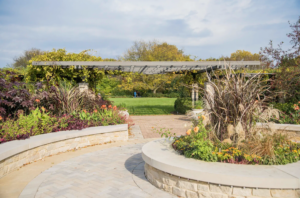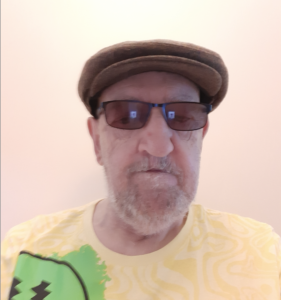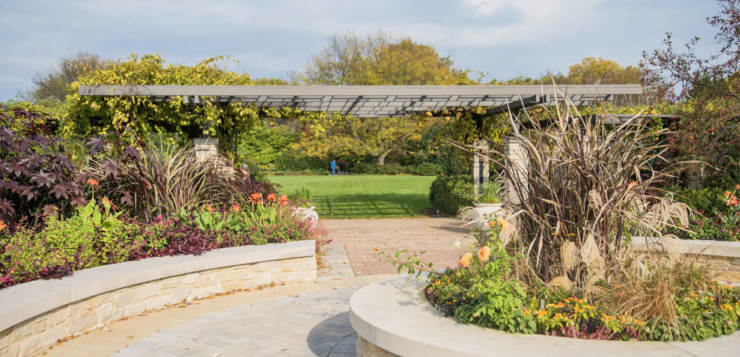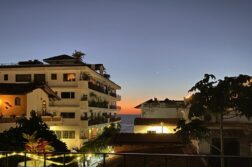
In the early 1980s, I was a senior outreach worker in Madison, Wisconsin. One Sunday, after church service, I met Ethel and Theodore, a couple I previously helped. I liked Ethel, but felt Theodore was very controlling. Ethel asked to speak to me privately, and told me about Glenn, her son, who was gay; he was their pride and joy. But now was in Madison General Hospital with what was then considered a new, scary illness: HIV-AIDS.
“The pastor says HIV is God’s punishment.” Ethel said.
“Do you believe that?” I asked.
“It’s what the Bible states,” she replied. Adding “Theodore says that he no longer has a son. To think of the lies Glenn told us. For years he said he hadn’t found the right girl yet, and we believed him. All the while he’s doing. . . that.” She sighed, and continued “It’s his birthday tomorrow. You drive by Madison General Hospital going home?”
“I do.” I responded.
“Can you drop in a parcel for Glenn?” she asked while looking around. “I don’t want Theodore to know about this. He would be very angry with me.”
“How do you feel about Glenn?” I asked.
“God knows he is a sinner, but. . .” she said, holding back tears. “He’s my only child. Can you help?”
“If I can do so, no problem.” But I wondered why she didn’t drive to the hospital herself.
She must have read my mind because the next words out of her mouth were, “I promised Theodore never to see Glenn. Still, I often think of him. My son may be a sinner, but I pray that God will forgive him.”
“I’m glad to be of help, Ethel. When I arrived the next day, a nurse told me Glenn’s in the smoking area, and pointed to a small annex where some patients were smoking. I went over and introduced myself to theyoung man. “Glenn? May I join you?”
“Sure,” he smiled, “It’s a free country.”
I explained who I was and handed him the parcel for that Ethel had handed to me . He opened the parcel. “As he read Ethel’s note, tears ran down his face. He looked emaciated, as if he hadn’t eaten since childhood. Dark rings around his eyes told me that he wasn’t sleeping much. As far as Ethel knew, Glenn had no visitors. He faced whatever future he had alone. During my frequent travels through the Deep South, I’d already heard stories on talk radio about HIV/AIDS. Here in Madison, in 1984, fear of the unknown often resulted in neglectful medical care.
Before I left Glenn, I wrote my name and phone number on a piece of paper.
“What’s this for?” he asked.
“If I can help in any way,” I said, “I live in Eagle Heights; it’s nearby.”
A week later, Glenn phoned. He wanted to leave the hospital to run some errands. “Could you drive me?” he asked. “I’ll pay you for your time.”
I agreed to pick him up next morning. Working part-time, I wasn’t due to work until evening.
Our first stop was at a cemetery near Madison.
“I’m picking out a plot.” Glenn said. “You want to come in?”
“I’d rather wait here.” I responded, and looked out at a featureless field. Sunburned grass with small, regular depressions. Such a contrast to my recent visit to Paris to see fellow Irishman Oscar Wilde’s grave, close to those of Edith Piaf, Jim Morrison, and Sarah Bernhardt.
His business done, Glenn asked if he could visit the Olbricht Botanical Gardens in Madison before returning to hospital. In the botanical gardens, we both sat for an hour in the conservatory, with its tropical plants, quail, canaries, and other colourful birds. Glenn pointed to a hummingbird bouncing from flower to flower.
“I needed to see this place one more time.” Glenn smiled. “My mother and I often spent hours just enjoying all of this. She loves tropical plants and so do I. This would be a good spot to spend eternity, assuming I’ll be shut out of heaven.”
He paused. “What brought you to Madison, Paddy?”
“A Quaker friend invited me here six months ago,” I responded. “I got this outreach job to pay my part my rent. I’m leaving the job soon.”
“Why so?”
“I need to move on, Glenn. Been a carpenter since I was fourteen and I want to work at my trade.”
“You could find construction work here, right?”
“I prefer to work down South,” I responded.
“Does it pay better, Paddy?”
“I work for food and board only. Once I get back to Lexington, Mississippi, the nuns will give me a list of work to do on Black family farms.”
“Nuns?” he asked.
“They organize everything. They gave up the comfort of providing for better-off white folks to cross the tracks and care for those who needed it more. Three middle-aged nuns provide all the medical, legal, and welfare needs for those who have no access to anything. I work for food and shelter and only need enough to pay for gas.”
We must have sat talking for quite a while, as dusk was settling in when I drove Glenn back to hospital. I visited Glenn a few more times, and brought him clothes, as his own were too big for him. The last time I visited him, he seemed so small and frail, hooked up to machines that kept beeping and swishing away. I didn’t wake him but left a parcel with a nurse. She asked if I was relative, and I lied and said yes. Only kin were allowed to visit that unit. When I asked a doctor how Glenn was doing, he just shook his head.
“I’ll let his parents know.” I spoke.
I got in touch with Ethel saying if she was ever going to visit, it must been soon.
I don’t know if Ethel ever got to see her son, but soon after Glenn died – I headed down South, and sometime later I heard from the Madison Senior Coalition. Ethel had sent a $100 dollar donation to the coalition and a ‘thank you’ note for me.
 Paddy Reid was born and lives in one of Dublin’s inner-city projects. Along with many short stories published in American and Canadian literary journals, he has written The River Healer with stories of his life and work for over a decade in Black farming communities in the deep South.
Paddy Reid was born and lives in one of Dublin’s inner-city projects. Along with many short stories published in American and Canadian literary journals, he has written The River Healer with stories of his life and work for over a decade in Black farming communities in the deep South.





